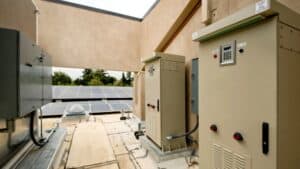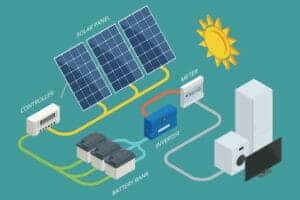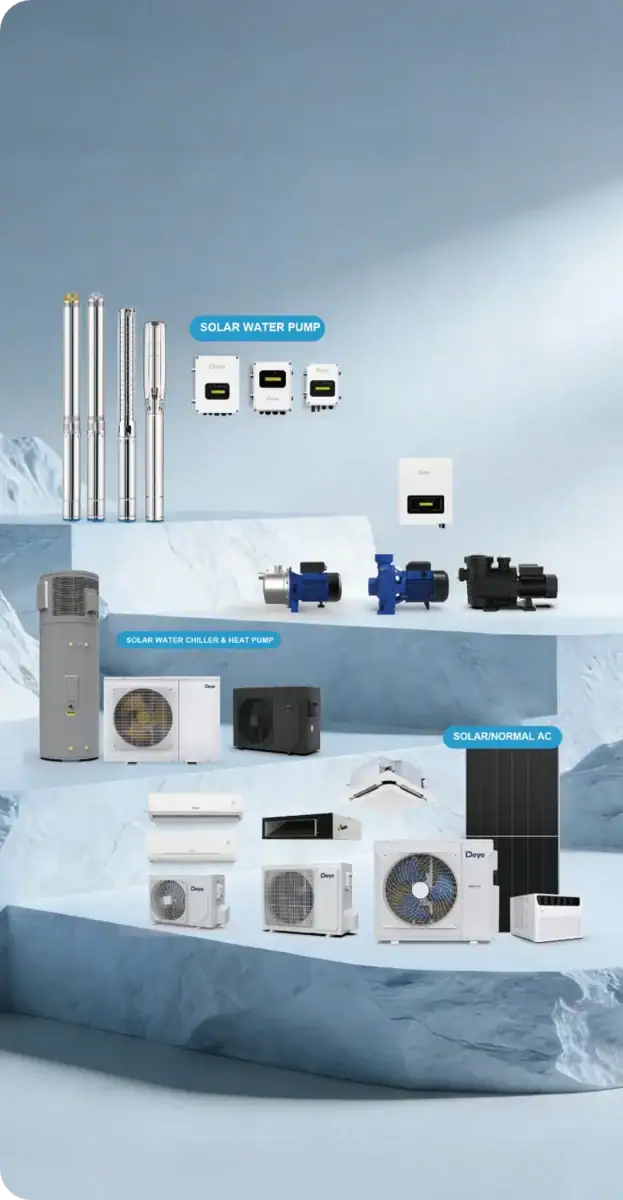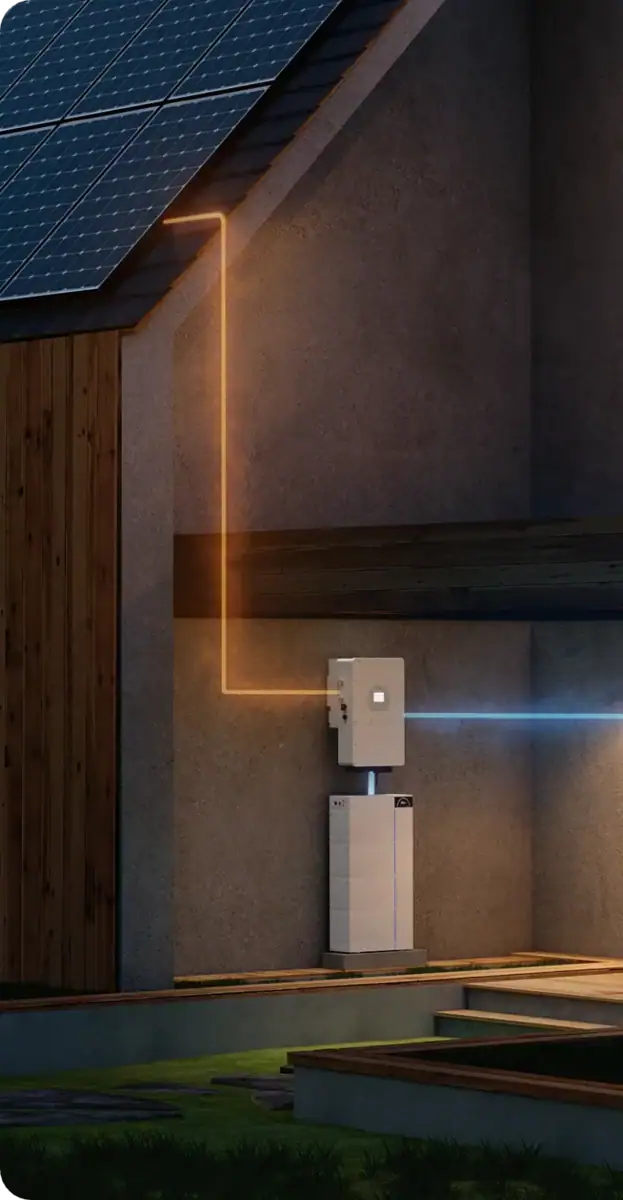As the world shifts towards renewable energy, homeowners and businesses consider solar power a sustainable energy source. One of the essential components of a solar energy system is the solar battery.
It stores excess energy generated during the day, allowing continuous use even when the sun isn’t shining. With the rising popularity of solar batteries, questions about their longevity are inevitable, especially when considering the initial investment.
How long do Solar batteries last depends on the type and quality of the battery, as well as usage patterns and maintenance. On average, solar batteries last between 5 and 15 years. This timeframe varies depending on temperature, depth of discharge, and how frequently they are cycled.
To make the most of your solar battery investment, it’s essential to understand these factors and how they affect its performance over time.
Our company, Deye is your trusted source for solar batteries for massive and personal projects. Browse our product pages to view and order solar batteries in bulk.
Key Takeaways
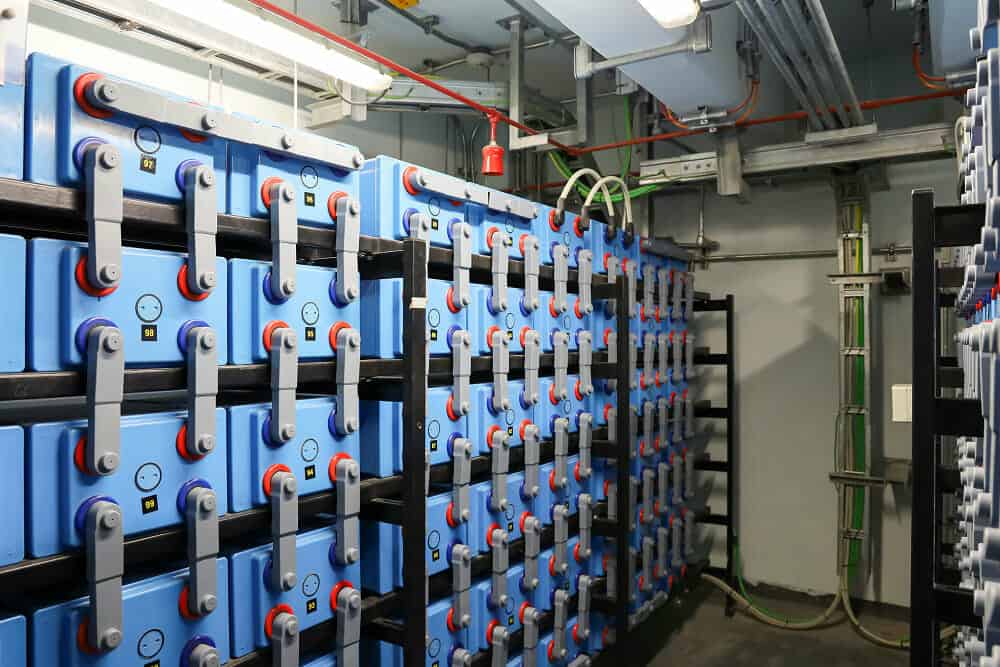
- Solar batteries typically last between 5 and 15 years, depending on various factors
- Understanding the factors that affect a solar battery’s lifespan can help optimize its performance
- Proper maintenance and usage patterns are essential for maximizing the longevity of your solar battery
Types of Solar Batteries
This section will discuss the different types of solar batteries you can choose from to power your home. The three main types include lithium-ion batteries, lead-acid batteries, and saltwater batteries.
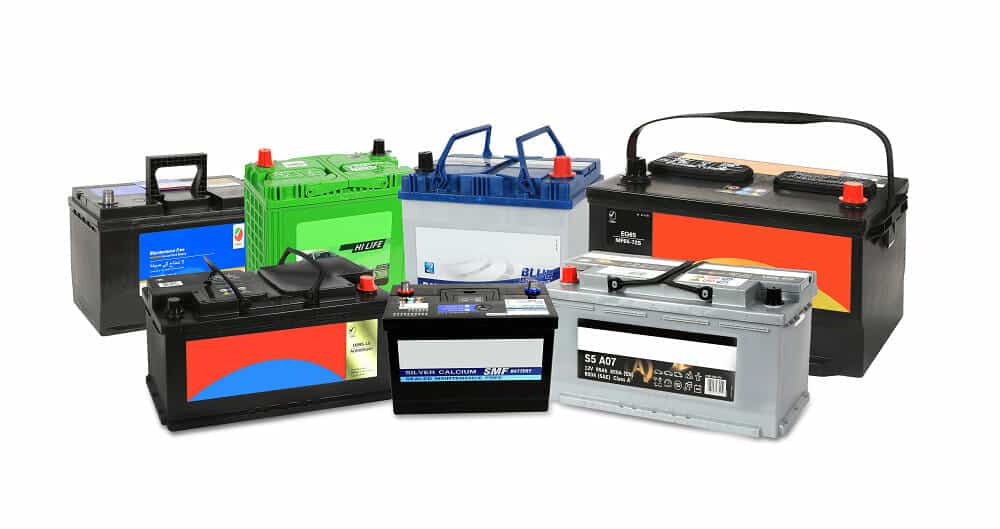
- Lithium-Ion Batteries
Lithium-ion solar batteries are currently the most popular choice for solar energy storage systems. They have a higher energy density, so they can store more energy in less space, making them an ideal choice for your solar battery needs.
Additionally, the lithium-ion battery has a longer lifespan, typically lasting between 10 to 15 years.
- Lead-Acid Batteries
Lead-acid batteries are a more traditional solar battery type commonly found in off-grid solar systems. While they have been around for quite some time, they are less efficient and require more maintenance than most solar batteries.
However, the lower initial cost of lead-acid batteries can make them appealing to some homeowners. The lifespan of lead-acid batteries is generally between 5 to 10 years. Also, they have an excellent solar battery storage capacity.
- Flooded lead-acid batteries require regular maintenance, such as checking and filling water levels.
- Sealed lead-acid batteries, including AGM (Absorbent Glass Mat) and gel batteries, are maintenance-free but comparatively more expensive than other types of solar batteries.
- Saltwater Batteries
Saltwater batteries are an emerging solar battery type that utilizes a non-toxic electrolyte solution. They offer an environmentally friendly alternative to traditional batteries. Saltwater batteries with 5000 cycles have a reasonably longer life span (about ten years) and are less likely to degrade quickly.
- Flow batteries
These batteries are products of innovative tech, recently developed. They have a lifespan of about twenty years and can be used for different solar powered systems.
Factors Affecting Solar Battery Lifespan
- Depth of Discharge
Your solar battery’s lifespan can be influenced by its depth of discharge (DoD). DoD refers to the percentage of the battery’s capacity used before it is recharged. Most manufacturers will provide a recommended DoD to maximize the battery’s lifespan.
- Operating Temperature
Solar battery performance is sensitive to temperature changes. High temperatures can lead to accelerated wear on battery components, and low temperatures may reduce the battery capacity. Maintain your solar battery within the temperature range recommended by the battery manufacturer to ensure optimal performance and extend lifespan.
- Maintenance
Regular maintenance plays a vital role in prolonging your solar battery’s lifespan. Proper maintenance practices include:
- Routinely checking the electrolyte levels in the battery and topping off with appropriate quality water if necessary.
- Ensuring battery terminals and cables are clean and free of corrosion. Clean them with a brush and water solution if needed.
- Inspect your battery for any damage, cracks, or swelling, and promptly address any issues.
By staying attentive to your solar battery’s needs and following the guidelines provided by your battery manufacturer, you can significantly extend the battery’s lifespan and ensure it delivers reliable energy storage for your solar system.
Advantages of using solar batteries
Solar batteries offer several advantages that can make them a worthwhile addition to your home or business. By choosing to utilize solar energy storage, you’re not only stepping into a more sustainable future but also enjoying several benefits.
- Energy Independence: By storing excess energy from your solar panels, you gain greater control over your electricity usage. This means you can rely less on the grid, ensuring a more stable and secure energy supply for your home or business. You’ll feel a sense of freedom knowing you’re less dependent on fluctuating energy prices and grid outages.
- Maximizing Solar Energy Usage: With solar batteries, you can make the most of your solar panels even after the sun goes down. By storing excess energy, you can draw from your battery during periods of low solar production or when the grid electricity rates are high. This way, you’ll use more clean energy and save money on your energy bills.
- Backup Power: A solar battery can provide backup power during power outages or grid failures. With a charged battery, you can keep your essential appliances running and maintain an uninterrupted power supply. This minimizes the inconvenience and potential hazards caused during blackouts.
- Financial Benefits: In some areas, incentives and rebates are available for installing solar batteries. This can further reduce the cost of your solar energy system, making it more financially viable. Additionally, with the correct tariff setup, you may be eligible to sell your stored excess energy back to the grid, creating another income stream.
With all these advantages, it’s clear that solar batteries can be a valuable asset. They allow you to save on energy costs and become more energy independent and contribute to a greener planet in a friendly and efficient way.
Why Choose Us
At our company, we understand the importance of utilizing clean and efficient energy sources. That’s why we provide high-quality solar batteries to power your home. With our friendly and professional service, you will experience numerous benefits when you choose us for your solar battery needs.

- High Quality Batteries – Our solar batteries are built with longevity in mind. Typically, they’ll last between 5-15 years, depending on usage and proper maintenance. Our commitment to quality ensures that you’ll receive a reliable solar battery with a long lifespan.
- Exceptional Customer Support – We also take pride in offering our customers exceptional support. From the initial consultation to installation and ongoing maintenance, our expert team will guide you every step of the way. Your satisfaction is our top priority, so we’re always happy to answer your questions and provide helpful tips on maintaining your solar battery system.
- Affordable Solar Batteries – In addition to friendly service, we prioritize affordability. Our pricing is competitive, and we work with you to find a solar battery solution that fits your budget without compromising quality. We even offer flexible financing options to make your transition to solar energy as smooth as possible.
- Innovative Solutions – Finally, we believe in keeping up with the latest solar battery technologies. We are dedicated to incorporating advancements into our products and services as advancements emerge. This way, we can continue providing you with cutting-edge solar battery solutions that maximize efficiency and reduce environmental impact.
You’re not just powering your home with clean, renewable energy by choosing www.deye.com for your solar battery needs. You’re also investing in a brighter future for our planet.
Frequently Asked Questions
How long do solar batteries typically last?
What factors affect a solar battery’s lifespan?
1. Temperature: Extreme hot and cold temperatures can affect the battery’s performance and lifespan.
2. Usage: Properly sizing your solar battery bank to match your energy usage prevents overcharging or excessive discharging.
3. Maintenance: Regularly checking and cleaning your solar battery system can help extend its lifespan.
What types of solar batteries are there, and which last the longest?
1. Lead-acid: These batteries are affordable and widely available but typically last only 3 to 5 years.
2. Lithium-ion: These batteries are more expensive but have a longer lifespan, usually between 10 to 15 years.
3. Flow batteries: These are a newer technology with a lifespan of around 20 years or more. They still need to be more widely available than the other two types.
How can I extend the life of my solar battery?
1. Monitor the battery’s temperature and keep it within the manufacturer’s recommended range.
2. Avoid overcharging or excessively discharging the battery.
3. Perform regular maintenance checks and cleaning.
4. Size your solar battery system correctly based on your energy needs.
Conclusion
Solar batteries are an essential part of a sustainable energy system. You can expect them to last between 5 and 15 years on average. However, their lifespan depends on factors like usage, maintenance, and the type of battery you choose.
Remember to select a high-capacity and efficient solar battery to reap the most benefits. Lithium-ion batteries are currently the ideal choice, offering longer life and better performance than lead-acid options.
As a friendly reminder, proper maintenance is vital in extending your solar battery’s life. You can make the most of your investment in solar energy by monitoring charge levels, performing regular checks, and following the manufacturer’s guidelines.
In summary, your solar battery system’s longevity depends on the choices you make and the care you provide. You can contribute to a greener and more sustainable future with a proactive approach.
Order in Bulk Today
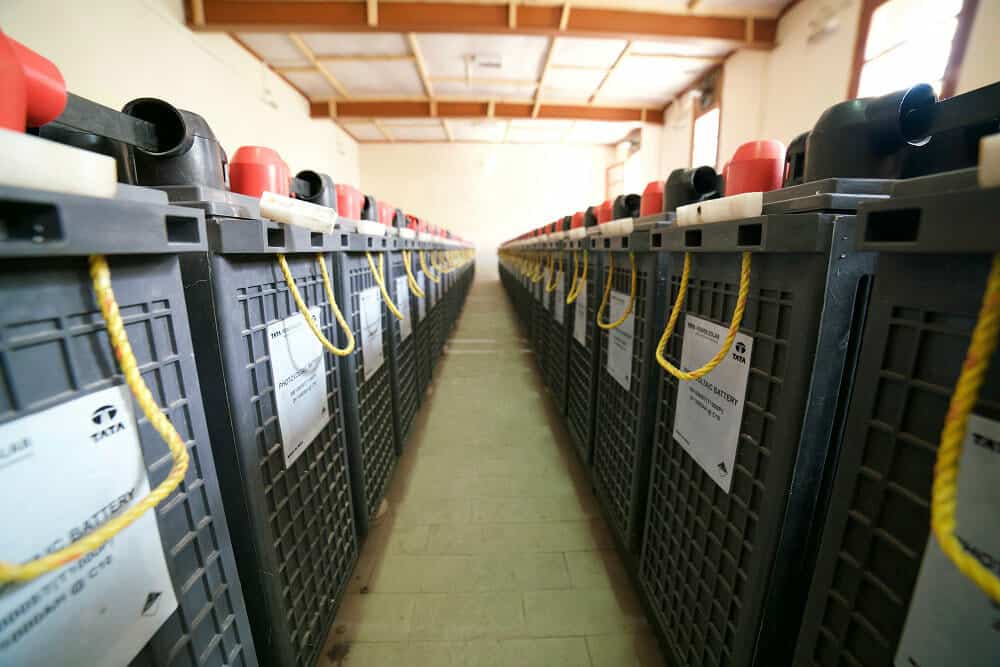
For the best solar batteries on the market, visit our site www.deye.com to order in bulk. We deliver to all global destinations without delay. Send us your orders or inquiries via the customer contact form on our website.




